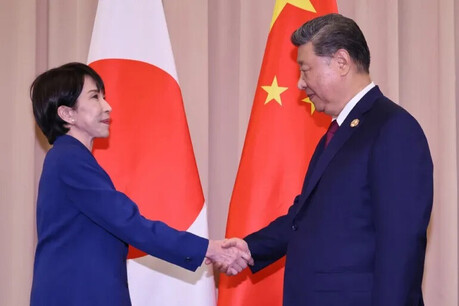
Seoul, South Korea – South Korea's pharmaceutical industry is facing significant challenges as it navigates the stringent "GMP One-Strike Out" system, a regulatory measure designed to ensure the quality and safety of domestically produced drugs. Implemented in 2022, the policy mandates the immediate revocation of a manufacturing facility's Good Manufacturing Practice (GMP) certification for any serious violations.
While the system was introduced with the noble aim of preventing repeated quality control lapses and safeguarding consumer health, it has sparked considerable debate within the industry. Pharmaceutical companies argue that the regulations are overly punitive and fail to account for the complex realities of drug manufacturing.
The controversy stems from a series of incidents in 2021 involving several major pharmaceutical companies, including Binex, Bioneer Pharmaceutical, and Chong Kun Dang, which were found to have engaged in unauthorized manufacturing and falsification of quality control records. These violations prompted calls for stricter regulations to deter such practices.
Under the "GMP One-Strike Out" system, pharmaceutical companies that obtain GMP certification through fraudulent means or repeatedly falsify manufacturing and quality control records are subject to immediate revocation of their certification. Since its implementation, several companies, such as Korea Huitex Pharmaceutical, Korea Shintex Pharmaceutical, and Donggu Bio, have faced administrative penalties under this policy. However, many of these companies have challenged the penalties in court and are seeking to reinstate their certifications.
Industry Concerns
Industry representatives argue that while severe penalties are necessary for egregious violations, the current regulations are overly harsh and fail to consider the inevitable challenges that can arise in a manufacturing environment. They contend that minor deviations from GMP guidelines, often caused by factors such as increased production or seasonal fluctuations, should not result in the immediate closure of a facility.
"GMP violations can occur due to unintentional mistakes in the production environment," said an employee at a pharmaceutical manufacturing plant. "Treating all violations with the same severity is excessive."
Moreover, industry experts point out that the criteria for determining "repeated violations" are unclear. While the Ministry of Food and Drug Safety (MFDS) has stated that repeated violations can trigger the revocation of certification, the specific definition and scope of "repeated" remain vague. This lack of clarity has created uncertainty within the industry and hindered efforts to comply with the regulations.
Balancing Regulation and Industry Development
The pharmaceutical industry acknowledges the need for robust regulations to ensure product quality and consumer safety. However, they argue that the current system should be more flexible and provide companies with opportunities to rectify minor infractions.
Some industry experts propose that the MFDS adopt a system similar to that of the U.S. Food and Drug Administration (FDA), which allows companies to submit corrective action plans within 15 days of a violation. This approach would enable regulators to distinguish between intentional misconduct and unintentional errors.
Other suggested reforms include expanding the acceptance of validation ranges to account for factors such as seasonal variations and minor fluctuations in production environments, and implementing a voluntary self-reporting system for minor deviations from approved labeling.
The Road Ahead
The success of the "GMP One-Strike Out" system hinges on the ability of the MFDS and the pharmaceutical industry to foster a collaborative relationship. While the MFDS is committed to ensuring the safety of pharmaceutical products, the industry seeks greater clarity and flexibility in the regulations.
"To bridge the gap between the regulator and the industry, the MFDS must actively listen to industry concerns and work towards developing more nuanced regulations," said a representative from a pharmaceutical industry association. "At the same time, the pharmaceutical industry must prioritize consumer safety and demonstrate a commitment to meeting international quality standards."
The "GMP One-Strike Out" system presents both a challenge and an opportunity for South Korea's pharmaceutical industry. By working together, the government and the industry can create a regulatory environment that promotes innovation, ensures product quality, and enhances the global competitiveness of the South Korean pharmaceutical sector.
[Copyright (c) Global Economic Times. All Rights Reserved.]





























